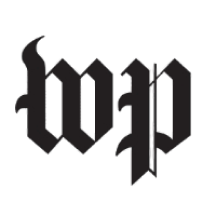
By Ahmed Aboulenein, Robin Respaut and Julie Steenhuysen
WASHINGTON (Reuters) - The U.S. Centers for Disease Control and Prevention intends to award the Rensselaer Polytechnic Institute a contract for investigating the association between vaccines and autism prevalence, a government website showed.
It was not immediately clear how the contract fits with existing initiatives pushed by U.S. Health Secretary Robert F. Kennedy Jr., who, contrary to scientific evidence, has for years promoted a link between childhood vaccines and autism.
Kennedy has made identifying the possible causes of autism a centerpiece of his policy agenda and promised a report this month that will reveal new information.
The notice of award, posted on Thursday to the government's official website, SAM.gov, was made by the CDC Office of Acquisition Services. It was for a single-source contract and can be issued without a competitive bidding process.
"The vendor has (the) unique ability to link children to maternal cohorts using proprietary databases and de-identified data sets, enabling advanced statistical analyses within the project’s timeframe," the posting said.
An RPI spokesperson said the institute "is aware of and appreciates the (CDC's) intent to award the grant." The CDC and Department of Health and Human Services did not respond to comment requests.
PROJECT LEAD RESEARCHED AUTISM CAUSES
Juergen Hahn, an RPI professor of biomedical engineering, would be the principal investigator if the contract is awarded, the spokesperson said.
Hahn's work includes an experimental blood test that he says can detect autism in 96% of cases in children, speeding up diagnosis. He has also conducted a project on using artificial intelligence to analyze autism data.
He is the author of a 2017 paper that found statistical associations between heavy metals and autism.
His papers have also linked autism to having a biological sibling with Autism Spectrum Disorder; maternal use of antidepressant medication and psychiatry services; a mother's surgical procedures and radiology exposure while pregnant; urinary tract infections during the first trimester; and preterm delivery during the second trimester.
"He is renowned for the quality and rigor of his research," the RPI spokesperson said. "If this project is awarded, he intends to publish the results of his work at the conclusion of the project."
Other Kennedy initiatives include a review of long-established findings about vaccine safety data at the CDC, overseen by David Geier, who also promotes the debunked link with autism.
Kennedy also announced a $50 million National Institutes of Health study on autism and a data initiative using Medicare claims and other data.
The CDC's own website still maintains that "studies have shown there is no link between receiving vaccines and developing autism."
Multiple large studies involving more than 1.2 million children, systematic reviews by the National Academy of Medicine, and dozens of studies outside the United States have concluded that vaccines do not cause autism.
As recently as last month, Kennedy urged the influential Annals of Internal Medicine journal to retract a large Danish study that found that aluminum ingredients in vaccines do not increase health risks for children, which the journal's editor rejected, Reuters reported.
Kennedy has made a series of changes to U.S. vaccine policy, including ousting CDC Director Susan Monarez, who started the job with his support only a month earlier, after she resisted changes he wanted that she believed contradicted scientific evidence.
Other moves include narrowing who is eligible for COVID shots and firing all 17 expert members of a CDC vaccine advisory panel, then choosing some fellow anti-vaccine activists to replace them. The revamped panel is due to meet for the second time next week.
(Reporting by Ahmed Aboulenein in Washington, Robin Respaut in San Francisco, and Julie Steenhuysen in Chicago; Additional reporting by Nancy Lapid; Editing by Mark Porter and Rod Nickel)

 Reuters US Domestic
Reuters US Domestic
 The Hill Healthcare
The Hill Healthcare STAT News
STAT News The Washington Post
The Washington Post Raw Story
Raw Story AlterNet
AlterNet Salon
Salon The List
The List The Conversation
The Conversation The Babylon Bee
The Babylon Bee The Daily Beast
The Daily Beast